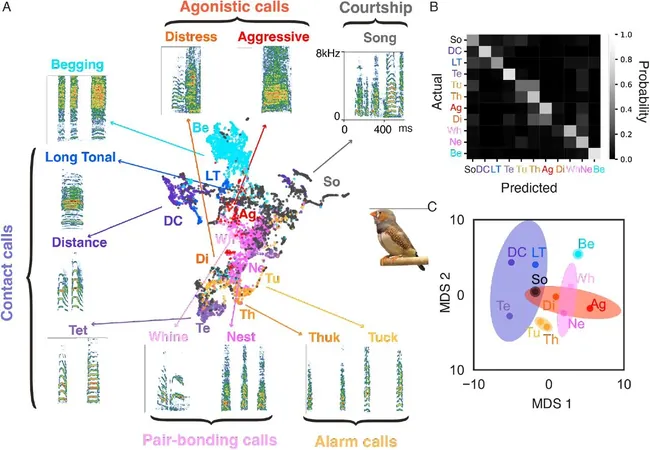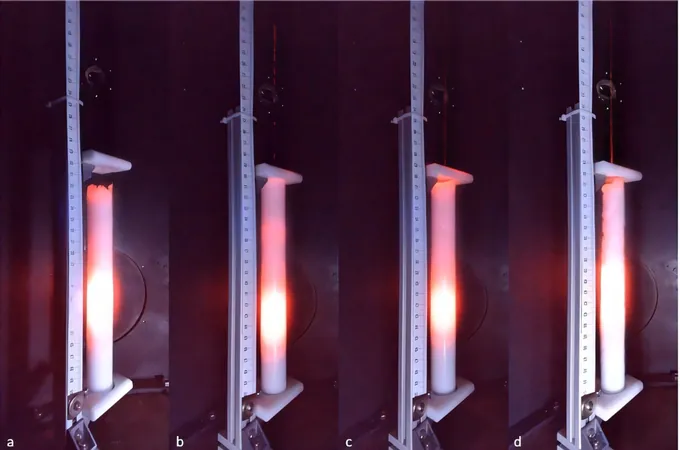
Farewell to Akatsuki: Japan’s Groundbreaking Venus Mission Ends
2025-09-22
Author: Liam
A Journey to Venus Begins
In May 2010, Japan's Aerospace Exploration Agency (JAXA) launched an ambitious mission dubbed "Planet C"—officially known as "Akatsuki" or the Venus Climate Orbiter. This spacecraft was designed to revolutionize our understanding of Venus, Earth's enigmatic "sister planet." However, its journey was fraught with challenges right from the start.
A Bumpy Start
As Akatsuki approached Venus in December 2010, a critical maneuver went awry. The spacecraft was meant to perform a twelve-minute burn to slow down and enter orbit, but a main engine malfunction cut that burn short to just three minutes. Akatsuki flew past Venus, seemingly sealing its fate.
A Triumphant Recovery
Defying the odds, JAXA leveraged Akatsuki's auxiliary control systems to alter its trajectory around the Sun. By 2015, the space agency triumphantly confirmed that the spacecraft had successfully entered orbit around Venus, orbiting at a distance of approximately 400 kilometers at its closest and spanning out to 440,000 kilometers.
Unlocking Venus’s Secrets
Once operational, Akatsuki began sending back valuable data and breathtaking images of Venus's atmosphere. JAXA's innovative instruments, including four cameras operating in ultraviolet and infrared wavelengths, enabled the probe to gather critical meteorological information by mapping clouds and detecting lightning. Its unique orbit actually complemented Venus's own atmospheric rotation.
A Legacy of Discoveries
Throughout its mission, Akatsuki made groundbreaking contributions, such as discovering the largest mountain wave in the Solar System and unraveling the mysteries behind Venus's high-speed atmospheric circulation. It even introduced Earth-based data assimilation techniques to Venusian research for the first time.
A Bittersweet Goodbye
However, all good things must come to an end. In April 2024, JAXA lost contact with Akatsuki due to a malfunction in its control systems. Despite efforts to restore communication, the spacecraft had outlived its expected operational lifespan.
A Lasting Impact
After fifteen years since its launch, JAXA officially bid farewell to Akatsuki. The mission, which lasted over eight years, stands as a monumental achievement in planetary science, leaving us with an invaluable treasure trove of data about Venus that will fuel research for years to come.









 Brasil (PT)
Brasil (PT)
 Canada (EN)
Canada (EN)
 Chile (ES)
Chile (ES)
 Česko (CS)
Česko (CS)
 대한민국 (KO)
대한민국 (KO)
 España (ES)
España (ES)
 France (FR)
France (FR)
 Hong Kong (EN)
Hong Kong (EN)
 Italia (IT)
Italia (IT)
 日本 (JA)
日本 (JA)
 Magyarország (HU)
Magyarország (HU)
 Norge (NO)
Norge (NO)
 Polska (PL)
Polska (PL)
 Schweiz (DE)
Schweiz (DE)
 Singapore (EN)
Singapore (EN)
 Sverige (SV)
Sverige (SV)
 Suomi (FI)
Suomi (FI)
 Türkiye (TR)
Türkiye (TR)
 الإمارات العربية المتحدة (AR)
الإمارات العربية المتحدة (AR)